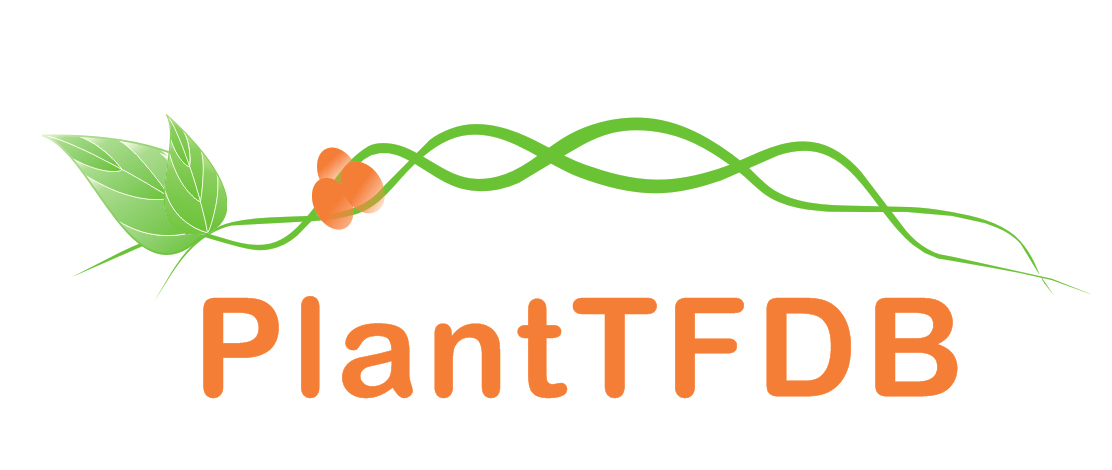| Signature Domain? help Back to Top |
 |
| No. |
Domain |
Score |
E-value |
Start |
End |
HMM Start |
HMM End |
| 1 | HLH | 45.9 | 1e-14 | 372 | 418 | 4 | 55 |
HHHHHHHHHHHHHHHHHHHHHCTSCC.C...TTS-STCHHHHHHHHHHHHHHH CS
HLH 4 ahnerErrRRdriNsafeeLrellPk.askapskKlsKaeiLekAveYIksLq 55
+h ErrRR+++N++f L++++P+ + K +K++iL A+eY+k+L+
Prupe.5G100700.2.p 372 NHALSERRRREKLNERFCVLKSMVPSiS------KDDKVSILDDAIEYLKDLE 418
7999**********************66......****************996 PP
|
| Publications
? help Back to Top |
- Skinner MK,Rawls A,Wilson-Rawls J,Roalson EH
Basic helix-loop-helix transcription factor gene family phylogenetics and nomenclature.
Differentiation, 2010. 80(1): p. 1-8
[PMID:20219281] - Liu Z,Shi MZ,Xie DY
Regulation of anthocyanin biosynthesis in Arabidopsis thaliana red pap1-D cells metabolically programmed by auxins.
Planta, 2014. 239(4): p. 765-81
[PMID:24370633] - Nemie-Feyissa D,Olafsdottir SM,Heidari B,Lillo C
Nitrogen depletion and small R3-MYB transcription factors affecting anthocyanin accumulation in Arabidopsis leaves.
Phytochemistry, 2014. 98: p. 34-40
[PMID:24388610] - Nayidu NK, et al.
Comparison of five major trichome regulatory genes in Brassica villosa with orthologues within the Brassicaceae.
PLoS ONE, 2014. 9(4): p. e95877
[PMID:24755905] - Wada T,Kunihiro A,Tominaga-Wada R
Arabidopsis CAPRICE (MYB) and GLABRA3 (bHLH) control tomato (Solanum lycopersicum) anthocyanin biosynthesis.
PLoS ONE, 2014. 9(9): p. e109093
[PMID:25268379] - Ranocha P,Francoz E,Burlat V,Dunand C
Expression of PRX36, PMEI6 and SBT1.7 is controlled by complex transcription factor regulatory networks for proper seed coat mucilage extrusion.
Plant Signal Behav, 2014. 9(11): p. e977734
[PMID:25531128] - Sun L, et al.
GLABROUS INFLORESCENCE STEMS3 (GIS3) regulates trichome initiation and development in Arabidopsis.
New Phytol., 2015. 206(1): p. 220-30
[PMID:25640859] - Nemie-Feyissa D,Heidari B,Blaise M,Lillo C
Analysis of interactions between heterologously produced bHLH and MYB proteins that regulate anthocyanin biosynthesis: quantitative interaction kinetics by Microscale Thermophoresis.
Phytochemistry, 2015. 111: p. 21-6
[PMID:25659750] - Yu D, et al.
RPN1a, a subunit of the 26S proteasome, controls trichome development in Arabidopsis.
Plant Physiol. Biochem., 2015. 88: p. 82-8
[PMID:25676129] - Huang M,Hu Y,Liu X,Li Y,Hou X
Arabidopsis LEAFY COTYLEDON1 controls cell fate determination during post-embryonic development.
Front Plant Sci, 2015. 6: p. 955
[PMID:26579186] - Dai X, et al.
A single amino acid substitution in the R3 domain of GLABRA1 leads to inhibition of trichome formation in Arabidopsis without affecting its interaction with GLABRA3.
Plant Cell Environ., 2016. 39(4): p. 897-907
[PMID:26667588] - Pan Y,Bo K,Cheng Z,Weng Y
The loss-of-function GLABROUS 3 mutation in cucumber is due to LTR-retrotransposon insertion in a class IV HD-ZIP transcription factor gene CsGL3 that is epistatic over CsGL1.
BMC Plant Biol., 2015. 15: p. 302
[PMID:26714637] - Alahakoon UI, et al.
Hairy Canola (Brasssica napus) re-visited: Down-regulating TTG1 in an AtGL3-enhanced hairy leaf background improves growth, leaf trichome coverage, and metabolite gene expression diversity.
BMC Plant Biol., 2016. 16: p. 12
[PMID:26739276] - Zheng K, et al.
Ectopic expression of R3 MYB transcription factor gene OsTCL1 in Arabidopsis, but not rice, affects trichome and root hair formation.
Sci Rep, 2016. 6: p. 19254
[PMID:26758286] - Shangguan XX,Yang CQ,Zhang XF,Wang LJ
Functional characterization of a basic helix-loop-helix (bHLH) transcription factor GhDEL65 from cotton (Gossypium hirsutum).
Physiol Plant, 2016. 158(2): p. 200-12
[PMID:27080593] - Petridis A,Döll S,Nichelmann L,Bilger W,Mock HP
Arabidopsis thaliana G2-LIKE FLAVONOID REGULATOR and BRASSINOSTEROID ENHANCED EXPRESSION1 are low-temperature regulators of flavonoid accumulation.
New Phytol., 2016. 211(3): p. 912-25
[PMID:27125220] - Gao C, et al.
Genome-wide identification of GLABRA3 downstream genes for anthocyanin biosynthesis and trichome formation in Arabidopsis.
Biochem. Biophys. Res. Commun., 2017. 485(2): p. 360-365
[PMID:28216162] - Friede A, et al.
The Second Intron Is Essential for the Transcriptional Control of the Arabidopsis thaliana GLABRA3 Gene in Leaves.
Front Plant Sci, 2017. 8: p. 1382
[PMID:28848584] - Gao C, et al.
Brassica napusGLABRA3-1 promotes anthocyanin biosynthesis and trichome formation in true leaves when expressed in Arabidopsis thaliana.
Plant Biol (Stuttg), 2018. 20(1): p. 3-9
[PMID:28940939] - Wen J, et al.
The C-terminal domains of Arabidopsis GL3/EGL3/TT8 interact with JAZ proteins and mediate dimeric interactions.
Plant Signal Behav, 2018. 13(1): p. e1422460
[PMID:29293407] - Kim SY,Hyoung S,So WM,Shin JS
The novel transcription factor TRP interacts with ZFP5, a trichome initiation-related transcription factor, and negatively regulates trichome initiation through gibberellic acid signaling.
Plant Mol. Biol., 2018. 96(3): p. 315-326
[PMID:29335898]
|




